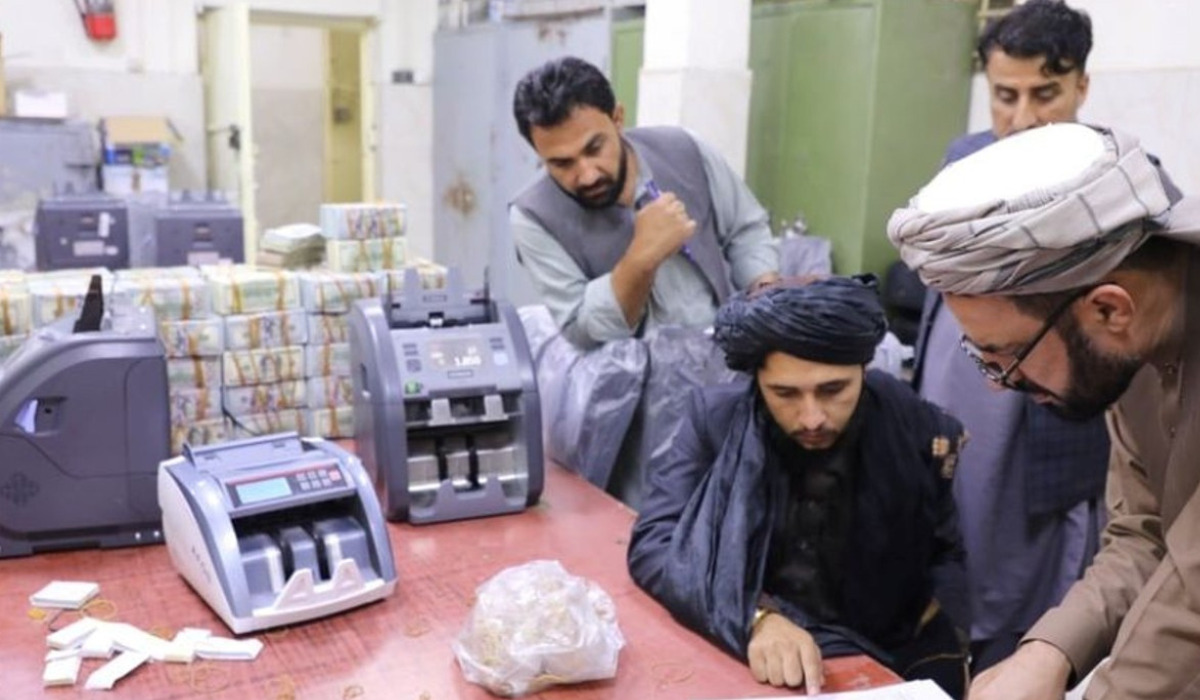The U.S. Special Inspector General for Afghanistan Reconstruction (SIGAR) found in a new report that since August 2021, 38 of the 65 implementing partners who responded to its questionnaire (58%) reported paying taxes, fees, duties, or utilities to the Taliban-controlled government.
According to SIGAR, these 38 respondents paid at least $10.9 million of U.S. taxpayer money to the “Taliban-controlled government”.
SIGAR stated that of this amount, $10.4 million stemmed from taxes, $346,839 from payments for utilities, $176,596 from fees, and $9,215 from customs duties.
SIGAR also found that the $10.9 million paid by 38 U.S. Department of State (State), U.S. Agency for International Development (USAID), and U.S. Agency for Global Media (USAGM) implementing partners is likely only a fraction of the total amount of U.S. assistance funds provided to the Taliban in taxes, fees, duties, and utilities. SIGAR reported this is because UN agencies receiving U.S. funds did not collect data or provide relevant information about their subawardees’ payments.
According to SIGAR, from October 2021 through September 2023, the UN received $1.6 billion in U.S. funding for programming in Afghanistan, approximately 63% of all U.S. assistance funding for Afghanistan during that period.
SIGAR noted that UN agreements with State and USAID do not include any requirements to annually report on taxes, fees, duties, or utilities incurred on U.S. funds provided for activities in Afghanistan. UN agencies told SIGAR that they did not pay any taxes, fees, or duties due to their tax-exempt status as a public international organization (PIO), in accordance with the Convention on the Privileges and Immunities of the United Nations.
However, SIGAR pointed out that UN agencies act as pass-through entities for State and USAID awards and use subcontractors to directly implement award activities.
Therefore, according to SIGAR, UN subawardees were required to pay taxes, fees, duties, or utilities in the same way as other State and USAID implementing partners.
SIGAR reported that implementing partners can experience significant consequences if they fail to pay the taxes, fees, duties, and utilities required by the Taliban-controlled government of Afghanistan.
In December 2022, the UN Office for the Coordination of Humanitarian Affairs stated that NGOs who fail to pay could face consequences such as frozen bank accounts, shuttered offices, or deregistration from a list of organizations allowed to operate in Afghanistan, according to SIGAR.
SIGAR also found that the Taliban has disrupted implementing partner activities in various ways, including attempts to divert aid or infiltrate NGOs and interfere with activities.
SIGAR noted that 17 of 65 questionnaire respondents (26%) reported experiencing direct pressure from the Taliban, including involvement in and approval of program design and implementation, access to facilities or use of resources or vehicles, recruiting or hiring of certain Taliban-approved individuals, or diverting food and other aid to populations chosen by the Taliban.
In addition to direct pressure on implementing partners, some respondents stated that the Taliban have regularly inquired about ways to obtain donor funding, including through the establishment of Afghan NGOs, according to SIGAR.
Despite facing harassment by members of the Taliban security forces, most implementing partners reported being able to decline the requests successfully, SIGAR stated. According to SIGAR, the direct collection of taxes, fees, duties, and utilities from U.S. government-funded activities risks contributing to the legitimization of the Taliban-controlled government in the eyes of the Afghan people.
For example, SIGAR reported that implementing partners noted the Taliban uses aid delivery as propaganda by taking credit for the aid provided to the Afghan people.
SIGAR found that most taxes, fees, duties, and utilities paid by implementing partners were not reported to State and USAID because State and USAID only require annual tax reporting on certain award types and, even then, only require the reporting of value-added tax (VAT) and customs duties.
Furthermore, SIGAR noted that State and USAID did not include tax reporting clauses in some awards despite requirements in State’s Foreign Assistance Directive (FAD) and USAID’s Acquisitions Regulations (AIDAR) and Automated Directives System (ADS).
Specifically, SIGAR found that State included the foreign tax reporting requirement in only 37 of the 48 (77%) grants and cooperative agreements that were required to contain such provisions by the FAD.
Similarly, SIGAR reported that USAID included the requirement in 69 of the 74 (93%) grants, cooperative agreements, contracts, or task orders, as required by the AIDAR and ADS. According to SIGAR, the FAD, AIDAR, and ADS require implementing partners to submit annual tax reports detailing VAT and customs duties paid on U.S. assistance.
Despite these requirements, SIGAR’s review of tax reports from U.S. agencies for fiscal years 2021 and 2022 found that U.S. agencies did not ensure that implementing partners submitted the reports.
For example, SIGAR stated that State provided SIGAR with foreign tax reports for only 9 of the 48 awards within this audit’s scope, which showed that State implementing partners did not pay any taxes.
However, SIGAR noted that State implementing partners told SIGAR that they paid $2.18 million in taxes, fees, duties, and utilities.
Similarly, SIGAR reported that USAID provided foreign tax reports showing $2.75 million in taxes paid.
However, USAID implementing partners informed SIGAR they paid a total of $8.24 million in taxes, fees, duties, and utilities. Although not all the taxes, fees, duties, and utilities respondents relayed to SIGAR were required to be reported to their respective U.S. agencies, the discrepancy demonstrates that State and USAID do not know the full scope of the taxes, fees, duties, and utilities paid on U.S.-funded assistance in Afghanistan, SIGAR stated.
Lastly, SIGAR found that implementing partners did not consistently comply with the Department of the Treasury’s Office of Foreign Assets Control (OFAC) recordkeeping requirements.
Despite OFAC regulations requiring that persons engaging in transactions that are subject to OFAC licenses maintain full and accurate internal records of each transaction for five years, implementing partners did not always comply, according to SIGAR.
For example, SIGAR noted that an implementing partner told SIGAR that they are paying taxes to the Taliban but are not maintaining records of those transactions.
Several other implementing partners stated that they retain the records, but only for one to four years instead of the required five years, SIGAR reported.
Given this inconsistent compliance, SIGAR found that the funding agencies do not have any assurance that implementing partners are adhering to the five-year recordkeeping requirement for transactions with the Taliban.
SIGAR Recommendations
To improve tax reporting on U.S. funds and ensure adherence to OFAC requirements, SIGAR recommends that the Secretary of State and the USAID Administrator:
Expand the foreign tax reporting requirements to all U.S. award agreements in Afghanistan, including agreements with PIOs, and to all types of taxes, fees, duties, and utilities.
Ensure that responsible officials include foreign tax reporting requirements in applicable award agreements.
Ensure that responsible officials collect required foreign tax reports from implementing partners.
Direct implementing partners to adhere, where applicable, to the OFAC requirement to maintain records of transactions with blocked persons for five years.





